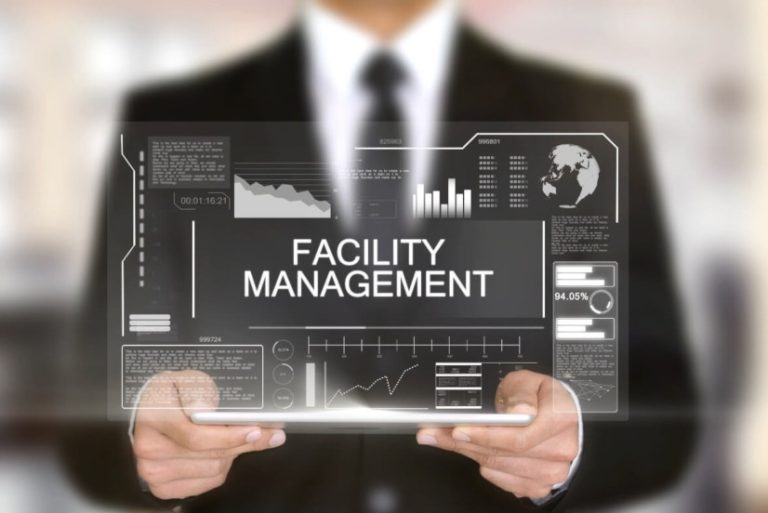Facilities Management Contract Management Systems: Streamlining Operations and Maximizing Value

-
 NEWGENE TECHNOLOGIES
NEWGENE TECHNOLOGIES
In today’s complex facilities management landscape, organizations must efficiently oversee a multitude of contracts with external vendors. This task involves various aspects of contract lifecycle management, necessitating close vendor relationship management to ensure optimal results. From HVAC maintenance and landscaping to security and cleaning services, the sheer volume of contracts can become overwhelming without a centralized system. This is where Facilities Management Contract Management Systems (FMCMS) come into play. These powerful software solutions, often integrated into a larger suite of facilities management software, help organizations streamline contract administration, ensure compliance, mitigate risks, and optimize cost-effectiveness.
What is a Facilities Management Contract Management System?
An FMCMS is a specialized software platform designed specifically to handle the complexities of facilities management contracts. It provides a central repository for all contract-related information, including:
Contract Documents: Store and organize contracts, amendments, and associated documents.
Key Contract Terms: Track start and end dates, renewal options, pricing structures, and service level agreements (SLAs).
Vendor Information: Maintain detailed vendor profiles, contact information, insurance certificates, and performance history.
Compliance: Automate alerts for upcoming renewals, expirations, and critical milestones, aiding in compliance management.
Financial Management: Track budgets, invoices, payments, and discrepancies, supporting cost control.
Analytics and Reporting: Generate reports on contract performance, vendor KPIs, and spend analysis.
Benefits of Using a Facilities Management Contract Management System
- Improved Visibility and Control: An FMCMS provides real-time insights into all aspects of your contracts, enabling proactive decision-making and eliminating surprises.
- Streamlined Contract Administration: Reduce errors, automate tasks, and enhance collaboration within your procurement teams with tools for contract creation, negotiation, and approval workflows.
- Enhanced Compliance: Mitigate risks by ensuring adherence to contract terms, regulatory requirements, and internal policies, a critical aspect of risk mitigation.
- Optimized Vendor Performance: Track vendor performance against SLAs, identify bottlenecks, and negotiate better contracts based on data-driven insights.
- Cost Savings: Reduce administrative overhead, eliminate overpayments, and optimize contract terms for long-term cost efficiency, supporting cost control initiatives.
Key Features of a Facilities Management Contract Management System
Contract Repository: Secure storage and easy retrieval of all contract documents.
Lifecycle Management: Track contracts from initiation to expiration, including renewals and amendments, aiding in contract lifecycle management.
Alerts and Notifications: Automatic reminders for key dates, milestones, and compliance tasks
Document Version Control: Maintain a clear audit trail of changes to contracts and related documents.
Workflow Automation: Streamline approvals, reviews, and renewals with customizable workflows.
Vendor Management: Centralize vendor information, performance metrics, and communication logs for optimized vendor relationship management.
Financial Tracking: Manage budgets, invoices, payments, and financial reporting related to contracts, assisting in cost control.
Reporting and Analytics: Generate dashboards and reports to analyze contract performance, vendor effectiveness, and cost trends.
Technical Considerations for Implementing an FMCMS
Cloud vs. On-Premises: Cloud-based FMCMS solutions offer scalability and accessibility, while on-premises systems might be preferred for organizations with strict data security requirements.
Integration with Existing Systems: Seamless integration with accounting, procurement, and work order management systems is crucial for a holistic view of operations.
User Interface and User Experience: A user-friendly interface is essential for ensuring adoption and efficiency.
Data Security: Choose a solution with robust security measures to protect sensitive contract and vendor information.
Scalability: The system should be able to grow with your organization’s evolving needs.
Conclusion
In the dynamic world of facilities management, an FMCMS is an indispensable tool for driving operational efficiency, ensuring compliance, and extracting maximum value from your contracts. By embracing this technology, organizations can gain unprecedented control over their vendor relationships, optimize costs, and deliver exceptional service to their stakeholders.